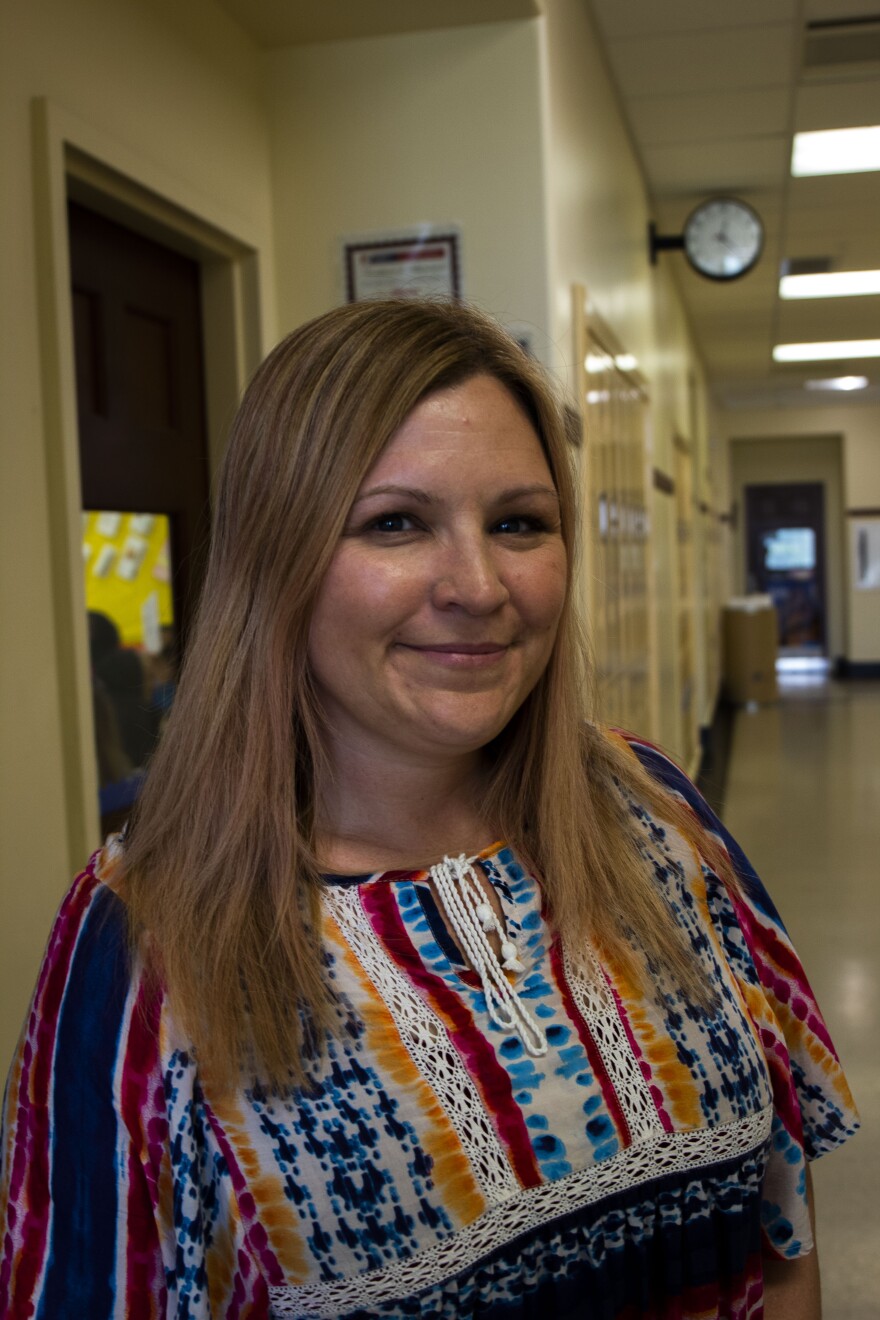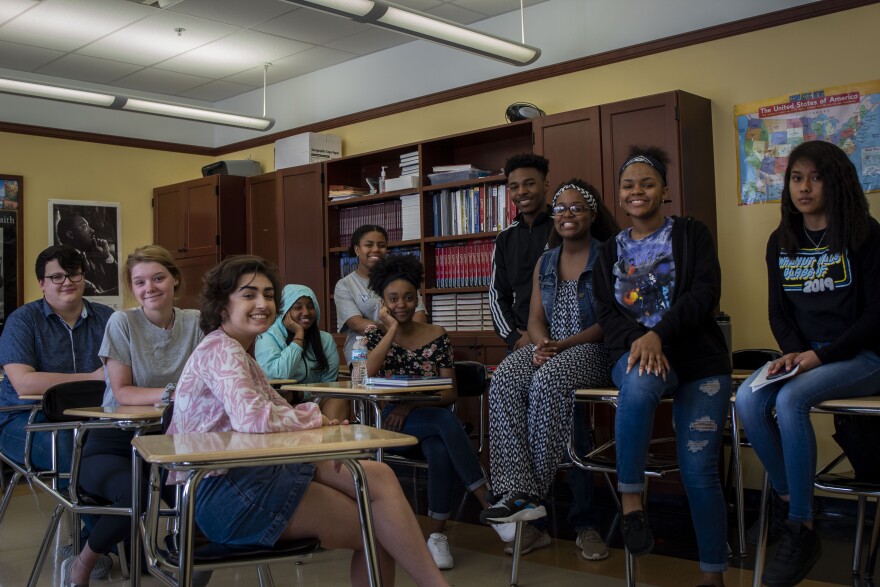Before taking Ethnic Studies at Walnut Hills High School, Holly Bates wanted to talk about race but didn't feel comfortable because of what she thinks is a lack of knowledge.
"But after this class, I feel like I know more and enough where I can have conversations with people and be able to defend what I think," Holly says. "Because I know the truth and the history of what I would be talking about."
Last year's seniors have crossed the stage already but say the lessons they learned in their Ethnic Studies class will go beyond school grounds.
The senior class focuses on history from minority perspectives and teaches students about the culture and contributions of each ethnic group in the United States. At the time, the course was currently offered as an elective for senior students and didn't add value to students' grade point averages.
Once students saw how rigorous the class was they pushed their teacher to propose the class for advanced academic status approval.
Walnut's instructional leadership team (ILT) is made up of stakeholders who decide on matters impacting student achievement, including class rank. Minutes from a March meeting show the ILT questioned how rigorous the Ethnic Studies course was and the need for it to be a weighted class. The team didn't vote at the meeting and decided to discuss it more with their departments.
Holly says not receiving credit for the class discouraged some students from enrolling.
"My students really kept me inspired to keep moving forward and to keep my eyes on the prize," teacher Pamela Owens says. "To keep my eyes on equity."
After the first meeting, Owens submitted another course curriculum that included a research-based project. The ILT approved the course in late April to be AA status starting in the 2020-2021 school year.
Students are required to take American History their sophomore year. Owens teaches both Ethnic Studies and American History at Walnut. She says American History doesn’t tell the full story. "Because of the way the curriculum is designed on a state level, we have to leave out the ethnic voices in our history," she says. "Unfortunately, that leaves this idea that there were no contributions from these other groups."
For example, American history leaves a gap between Supreme Court cases Plessy v. Ferguson and Brown v. Board of Education. So, students learn the court went from ruling schools could be separate but equal to declaring separate is unequal. But that leaves out the nuance and other historical moments that pushed the justices to that conclusion.
"The courses and everything else are whitewashed. You learn about the gist of it and sometimes the gist is wrong or very misleading," Holly says. "After you start hearing stuff on the news, you're like what if this isn't right?"
Class days vary between reading graphic novels, research, discussions about documentaries/current events and acting out historic scenarios. The class recently acted out a Black Panther mixer where students role-played being FBI agents and Panther members. The "agents" asked why they were a Black Panther and "Panthers" asked agents why they felt the party was dangerous.
Senior Jack Setters says learning about systematic racism and its suppression of minorities helps him understand the historical precedent in daily life. "If I don't educate myself on these issues, I think we become complicit in them," Jack says. "Because if you don't work against it, you're a part of the problem."
"I think that when we teach history where the only heroes are white, and accomplishments have only been made by white people, that takes away voices," Owens says.
According to the students, at the beginning of the school year minority students took the lead in class discussions. Gracie Holloway says she was silent because she didn't want to misarticulate. "Sometimes people associate white people with being racist and you just didn’t want to come off as racist. So, you're like 'Oh I don’t want to say anything that's going to make me look bad.' "
Owens created the ethnic studies curriculum based on similar classes offered at Bowling Green State University and University of California Berkeley.

Students say they had mixed feelings when they found out their teacher would be a white woman. Tamera Meadows says it proves that people have preconceived ideas about how a white person would teach the class. "Honestly I didn't expect her to be white. I just kind of assumed that she would probably be black based on the fact that it was called 'Ethnic Studies,' " she says. "It surprised me, but I don’t think I thought too much of it. But now I think more about the fact that she's white."
Owens says she doesn't see those preconceived notions as negative. "That's good because at the end of the year you will have to question 'why,' " she says. "Why were you hesitant about the person in front of you?"
Learning these perspectives led the class to have raw conversations about race impacting their daily lives. Owens says she is startled when she hears students say they don’t see her as a white person. "The idea of whiteness, for a lot of my students, has been pain," she says. "I have had students say to me 'I don’t think of you as white because you’ve never hurt me. But if you did it wouldn't surprise me.' "
2019 seniors didn't receive credit for taking the course but future students will.
"A lot of the stuff that we learn in the course pertains to minority students and is from a minority perspective," student Hannah Begashaw says. "But if more white students who grow up to be white people in society hear those minority perspectives. Society will begin to change beginning at Walnut Hills and within the rest of the community. I think that is really important."


